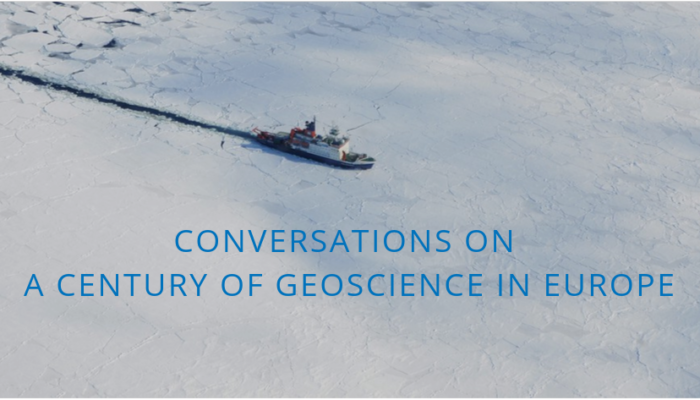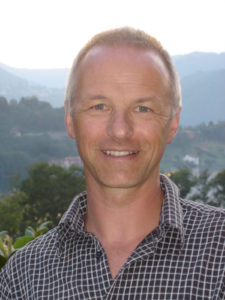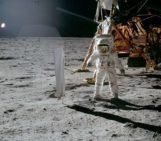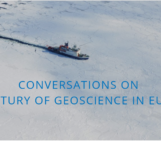
Over the last century, geoscientists have made incredible contributions to our understanding of the Earth, the solar system, and beyond. Inspired by the American Geophysical Union (AGU) and the International Union of Geodesy and Geophysics (IUGG) centennials, which are celebrated in 2019, we would like to highlight Europe’s role in shaping the geosciences and the great achievements of European geoscientists within the last century.
In this series of interviews, scientists reflect on the last 100 years of Earth, space and planetary sciences in Europe and share their perspectives on the future.
 Karsten Gohl: Head of Geophysics Section at the Alfred Wegener Institute (AWI) Helmholtz Center for Polar and Marine Research
Karsten Gohl: Head of Geophysics Section at the Alfred Wegener Institute (AWI) Helmholtz Center for Polar and Marine Research
In your opinion, what are some of the biggest ways Europe and European scientists have shaped the geosciences within the last century?
One of the broadest achievements in the geosciences in the last century is the transformation from individual discipline-oriented foci to an understanding of the interacting components of the entire Earth system in its complexity. This has brought together geophysical studies of Earth’s internal geodynamic activity to geological and geomorphological dynamics that have shaped the Earth’s land and ocean surface. The main initial driver of this integrative approach has been the rising demand for understanding climate system processes at various time scales.
For instance, global seismic tomography models have revealed unprecedented 3D images of the mantle convection system which drives long-term and current solid Earth processes. These processes control atmospheric circulation, which in turn affects climate and ice sheet evolution. Another example is the great advancement in geochemical analysis and development of proxies for palaeoclimate parameters such as temperature and CO2 concentrations that provide baseline data for comparative process studies on present and future climate projections.
Researchers from European organisations and universities have been leading this transformation and evolution into a more Earth system holistic approach, in which the solid Earth, oceans, cryosphere and atmosphere are regarded as a closely linked dynamic system.
Which European researcher from the last century has influenced your work the most?
This is difficult to answer, because it has never been a single researcher that influenced my work. Internationally (not restricted to Europeans), I would single out Dietmar Müller from University of Sydney (Australia) who built the most active and future-oriented geodynamic and Earth system science working group/network globally by using a data-mining approach starting already in the late 1990s before the term ‘big data’ has been on everybody’s mind.
For the next generation of researchers, what skills/technology/concepts do you think will be the most important for advancing the next century of geoscience?
One of the greatest challenges for the next generation of geoscientists will be to learn mathematical and numerical skills in order to link, correlate, integrate, analyse and model a large variety of data from different geoscientific disciplines. These numerical skills for simulating processes will become more and more necessary even for individual geoscientific fields such as geochemistry, palaeontology or hard-rock geology. Therefore, university geoscientific study and degree programs must focus more on teaching mathematical, numerical, physical and chemical skills.
What do you think will be the biggest challenges for the geosciences in the next century?
One of the challenges is to continue the numerical integration of the datasets produced by the various geoscientific disciplines towards more realistic (and thus more complex) Earth system models at various spatial and temporal scales. Simulations of Earth dynamic processes must include long-term mantle-dynamic, crustal and sedimentary processes linked with Earth surface and ocean dynamics.
Another challenge is understanding (and having a mutual appreciation for) how solid Earth and Earth surface processes are linked to the biological and ecological systems. Matter and energy fluxes drive the dynamics and distribution of biological systems, but a deep understanding of these processes is still lacking.
Interview by Olivia Trani, EGU Communications Officer




